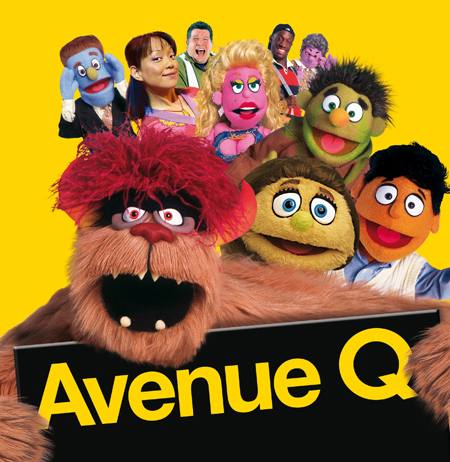
Saturday, September 26, 2009
"You must choose...but choose wisely..."

Saturday, September 19, 2009
Star Power???

So, I had the opportunity to see a Broadway show in a preview performance the other night. For those that don't know, here's what previews are all about: Before a show officially opens on Broadway, it has a number of preview performances, where tickets are sold, often at a discount because the show is not "frozen" yet. During the run of these performances, directors and producers can tweak the show based on what they saw played in front of the audience. So Tuesday's performance may be a little different from Wednesday's. Sometimes things work on paper, but not when they're mounted on a stage for public consumption. This includes changing staging, removing or inserting musical numbers, or even, in drastic cases, recasting certain parts. This allows the show to be the best it can possibly be before Opening Night. Furthermore, it starts some early buzz for the show.
Now, this blog was never intended to be a "Critic's Corner." Liking or disliking a show often has to due with subjective tastes. That being said, I would be remiss if I didn't discuss the feeling that the show I saw the other night is the reason Broadway often gets a bad reputation for dumbing down it's entertainment with attempts for fast cash based on alleged "big names" and absolutely ZERO creative substance.
I'm not going to mention the show by name, but if you've been paying attention to the upcoming Broadway season, it won't be a big mystery. This is a musical revival of a "classic" Broadway show. Now, it has been said that there are only three reasons to revive a show on Broadway:
1. The show has not been seen on Broadway in quite some time (like the recent revival of "West Side Story").
2. There is a new, fresh, directorial perspective (John Doyle's "Sweeney Todd").
3. There is a star that absolutely must be seen in an iconic role (Patti Lupone in "Gypsy").
Based on those criteria, only #1 really counts for this show. But, truthfully, there may be a good reason it hasn't been revived in a while. The material is kind of, well, weak. But, maybe the producers were banking on the star power of their leads to carry the show and raise the level of the material. Bad idea. Really, really bad idea. I often don't have a problem with a "star" in a show...if they're good. But, when talent agents negotiate a Broadway contract as something for their TV star to do on summer hiatus, or if their pilot doesn't get picked up, it hurts the show and the business.
Admittedly, there are many times where a show only exists because of the star attached. "The Boy From Oz" would not have been on Broadway without Hugh Jackman. But, Hugh Jackman is a great theatre actor, singer, and yeah, dancer (In 2003-2004, Wolverine was doing Rockette-style high kicks--Believe it. It happened). The show was good. HE made it great. He single-handedly ruled the box office and won a Tony award for his performance. In fact, instead of trying to find a replacement for him when his contract was up, the producers just decided to close the show. They even recouped the entire Broadway investment!
Look, ultimately, this show will be fine because it has a built-in audience (this is a non-profit company with a subscription base--so many tickets sell before the show is even in rehearsals) and a limited run. But, frankly, that's kind of what annoys me a bit. Did you really need these "stars" to boost your box office considering you have a loyal subscription base? There are so many actors that could have done so much more with these roles and would have made the show better. Instead, these stars have exposed the flaws of the show and their flaws as performers. Understandably, companies want to have safer bets in this economy, so you bank on "names" to get people to the theatre. But, if it's a big name on a bad product, and furthermore, the big name is part of the reason for the bad product, how have you positioned yourself for future sales? You do want your audiences to come back, don't you?
I have seen two productions of this particular show before this current revival. Both times were middle school productions performed by teenagers. Both previous productions made me care about the characters and show more than this professional production. There was more heart, excitement, and purity in those productions. I think they cost about $5 to see. Tickets for this revival range from $86.50 to $136.50. Now, I'm not really a math guy. But, something doesn't add up.
Monday, September 14, 2009
Avenue Q closed...wait....

Let's not break out the black dresses and mourning attire just yet. It turns out the closing of one of the most innovative and hilarious musicals on Broadway was only "For Now." In a groundbreaking move, the producers of "Avenue Q" joined the cast on the stage for the final curtain call yesterday and announced that they will be moving the show Off-Broadway for an open-ended run, starting October 9! This will be the first time that a Broadway show will be taken Off-Broadway for a new life. And there couldn't be a more perfect show for this move.
Thursday, September 3, 2009
Layeth the Smacketh Down


